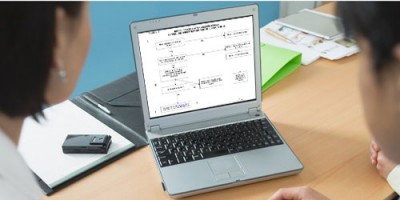F&A Rates
FY2025 F&A Rates |
From |
To |
Rate(%) |
Location |
Base |
| Predetermined | July 1, 2021 | June 30, 2022 | 64.0% | On campus | Research |
| Predetermined | July 1, 2022 | June 30, 2023 | 64.5% | On campus | Research |
| Predetermined | July 1, 2023 | June 30, 2024 | 66.0% | On campus | Research |
| Predetermined | July 1, 2024 | June 30, 2025 | 66.5% | On campus | Research |
| Predetermined | July 1, 2021 | June 30, 2025 | 26.0% | Off campus | Research |
| Predetermined | July 1, 2021 | June 30, 2022 | 54.0% | On campus | Instruction |
| Predetermined | July 1, 2022 | June 30, 2025 | 55.0% | On campus | Instruction |
| Predetermined | July 1, 2021 | June 30, 2025 | 26.0% | Off campus | Instruction |
| Predetermined | July 1, 2021 | June 30, 2022 | 38.0% | On campus | Other Sponsored Activity |
| Predetermined | July 1, 2022 | June 30, 2025 | 38.5% | On campus | Other Sponsored Activity |
| Predetermined | July 1, 2021 | June 30, 2025 | 26.0% | Off campus | Other Sponsored Activity |
| Provisional | July 1, 2025 | Until Amended | Same as above |
Fringe Benefit Rates
Fringe benefit costs are recovered as a direct charge on grants as a percentage of salaries and wages. The fringe benefit rates are determined annually based on the actual versus projected experience of the close out year and the projected costs for fringe benefits in the current year. Fringe benefit rates for the current year, and up-coming year if available, are:
FY2025 Research FringeBenefit Rates |
Faculty, Staff,& Postdocs |
GraduateAssistants |
SpecialPayroll |
Employee Class |
All Excluding S/U/X/Z |
S |
U/X/Z |
| Retirement | 0.0% | 0.0% | 0.0% |
| Medical/dental insurance | 19.6% | 15.0% | 2.1% |
| Social Security – FICA | 4.2% | 6.2% | 6.2% |
| Social Security – Medicare | 1.5% | 1.5% | 1.5% |
| Unemployment Compensation | 0.2% | 0.2% | 0.2% |
| Workers’ Compensation | 0.8% | 0.8% | 0.8% |
| Life, LTD, Separation, and Sabbatical | 0.9% | 0.0% | 0.0% |
| Federal Carry-forward | 0.4% | -4.3% | -1.7% |
| Forecast | 0.0% | -2.6% | -0.6% |
| FY2025 Fringe Rate | 27.5% | 16.8% | 8.4% |
| Rates for budgeting | 27.5% | 16.8% | 8.4% |
The University’s F & A Agreement, negotiated with the Department of Health and Human Services, F&A and FB Rate Agreement.
Modified total direct costs, consisting of all direct salaries and wages, applicable fringe benefits, materials and supplies, services, travel and up to the first $25,000 of each subaward (regardless of the period of performance of the subawards under the award). Modified total direct costs shall exclude equipment, capital expenditures, charges for patient care, rental costs, tuition remission, scholarships and fellowships, participant support costs and the portion of each subaward in excess of $25,000. Other items may only be excluded when necessary to avoid a serious inequity in the distribution of indirect costs, and with the approval of the cognizant agency for indirect costs.
Guidance on the Use of Off Campus Indirect Cost Rate
In accordance with our current F&A Rate Agreement:
For all activities performed in facilities not owned by the institution and to which rent is directly allocated to the project(s), the off campus rate will apply. Grants or contracts will not be subject to more than one F & A rate. If more than 50% of a project is performed off campus, the off campus rate will apply to the entire project.
The off campus indirect cost rate can be budgeted as follows:
- If rent is directly charged to the project.
- If more than 50% of all program activities are performed off campus (we request written confirmation from the PI).
- If the sponsor specifically requires the off campus rate per the solicitation.
The on campus rate is normally applied whenever the University leases and pays for space costs that are not direct charged to a grant or contract.
Reduction of F&A on Projects Having a Total Cost of $50k or Less
To allow for more buying power on small sponsored projects and to help foster smaller awards which may lead to additional funding, F&A on new awards received after October 1, 2017 with total costs of $50,000 or less, will be reduced to 20% or the difference between the full F&A rate and 20% will be distributed to the investigators F&A account.
Sponsored Program Services (SPS) has developed guidance and FAQs on how this program will be implemented.
 The purpose of the OCTR as it relates to the School of Dental Medicine clinical research/clinical trials do not change from our overall goal for researchers in the School of Medicine. Our goal is to provide clinical researchers administrative assistance with the following tasks:
The purpose of the OCTR as it relates to the School of Dental Medicine clinical research/clinical trials do not change from our overall goal for researchers in the School of Medicine. Our goal is to provide clinical researchers administrative assistance with the following tasks: